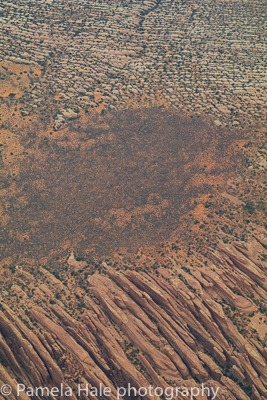Behind the smoke screen of daily drama in the media, you may have noticed that our President is busy dismantling protection for our wild lands. He has approved a recommendation to reduce protection for Bears Ears National Monument and Grand Staircase-Escalante National Monument in Utah—part of the vast land that became protected by the stroke of Clinton’s pen.
It just so happens that this very week, I’ve been reading Red: Passion and Patience in the Desert, by Terry Tempest Williams Her poetic eloquence, intellectual rigor and passionate defense of the land clearly represents a different world than the one inhabited by our current leadership.
How then, I ask myself, can we bridge these two worlds? How can we—even with less poetic voices—be convincing advocates for the wild, untouched, precious areas in our country and in our lives?
Way back in 1995, Tempest Williams testified before the Senate Subcommittee on Forest & Public Lands Management, objecting to a wilderness bill:
“Mr. Chairman, if you know wilderness in the way you know love, you would be unwilling to let it go. We are talking about the body of the beloved, not real estate. We must ask ourselves as Americans, ‘Can we really survive the worship of our own destructiveness?’”
These issues are, of course, not new. Most wilderness has been created by visionary Presidents. amidst the protest of those whose pocketbooks are lined by extracting resources or developing wild land. Now the vision must come from the people.
Is it any coincidence that this is going on amidst sexual scandals and women speaking out in behalf of their own bodies, as never before? I think not. Women have had good reason to fear speaking about the abuse and disrespect the feminine has been suffering for millennia.
Mother Earth has a body too, and cannot speak for herself except through storms, earthquakes and other responses to the changes she is experiencing. Remember the film Koyaanisqatsi–Life Out of Balance?
“We have forgotten the option of restraint.”
This is not about politics; it is about what we want our legacy to be as human beings.
“It is no longer the survival of the fittest but the survival of compassion.”
When I consulted for organizations who were experiencing internal dysfunction or financial problems, I always returned them to the foundational level of values. Why were they in existence besides making money? What contribution did they want to make? I must ask myself these questions as I go about my own business.
“A nation’s appetite for beauty transcends a state’s hunger for greed.”
I have a voracious appetite for beauty. How about you? I understand greed and the necessity to make a living. And, I stand with communities like the Pachamama Alliance , Bioneers and many conservation organizations, whose voices echo warnings from indigenous elders and the spirits of the the Grandmothers, Grandfathers and ancient ones.
We can find ways to speak in behalf of restraint, of compassion, of love for beauty, of hunger for the wild in the land and in ourselves.
“Who has the strength to see this wave of destruction as a wave of renewal?” Something quickens in me; I think it is hope. I remember:
“We can give birth to deep change, creating a commitment of compassion toward all living things. Our human-centered point of view can evolve into an Earth-centered one….Is this too much to dream? Who imposes restraint on our imagination?”
All quotes are from Red, by Terry Tempest Williams
This piece also appears on Huffington Post here.

